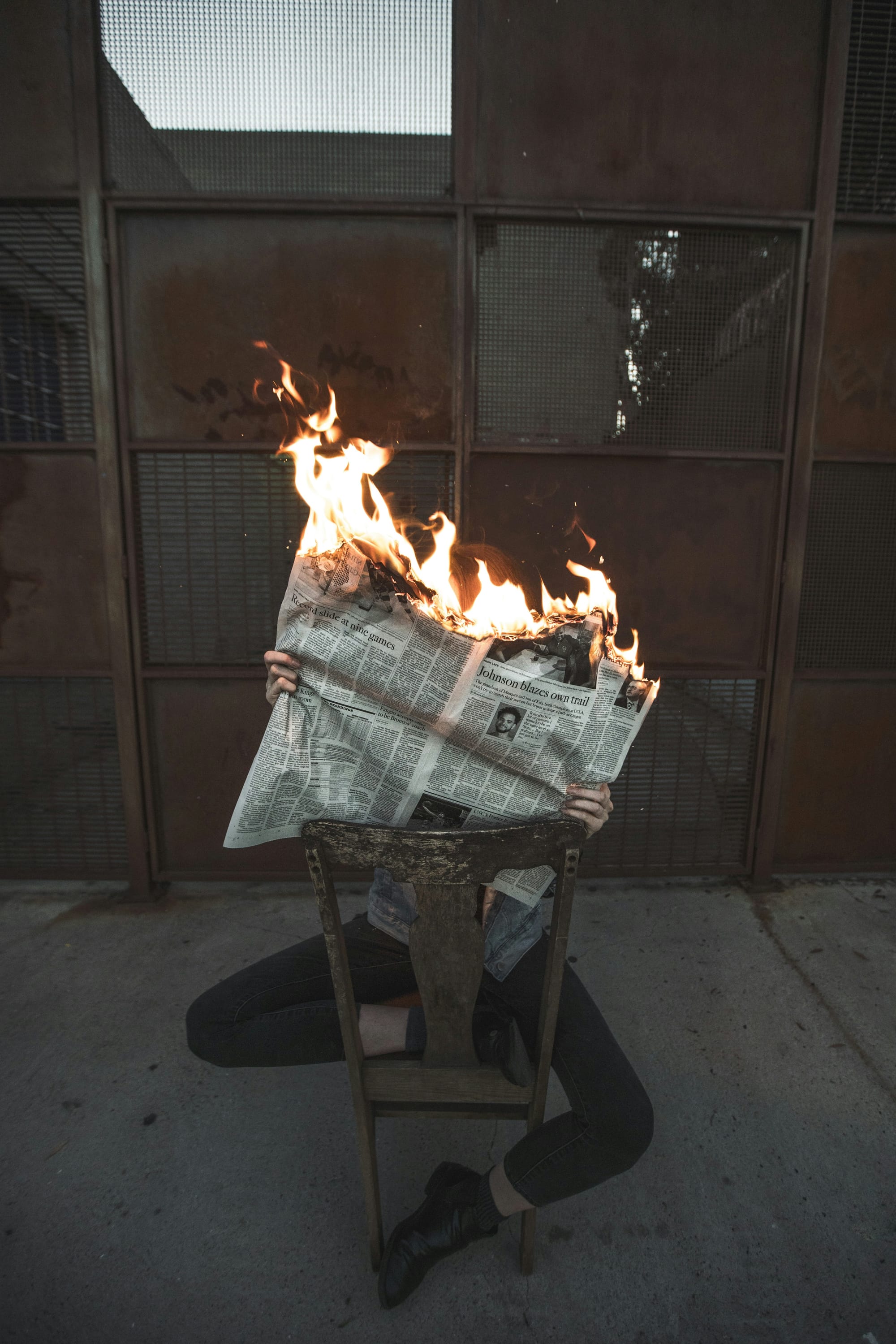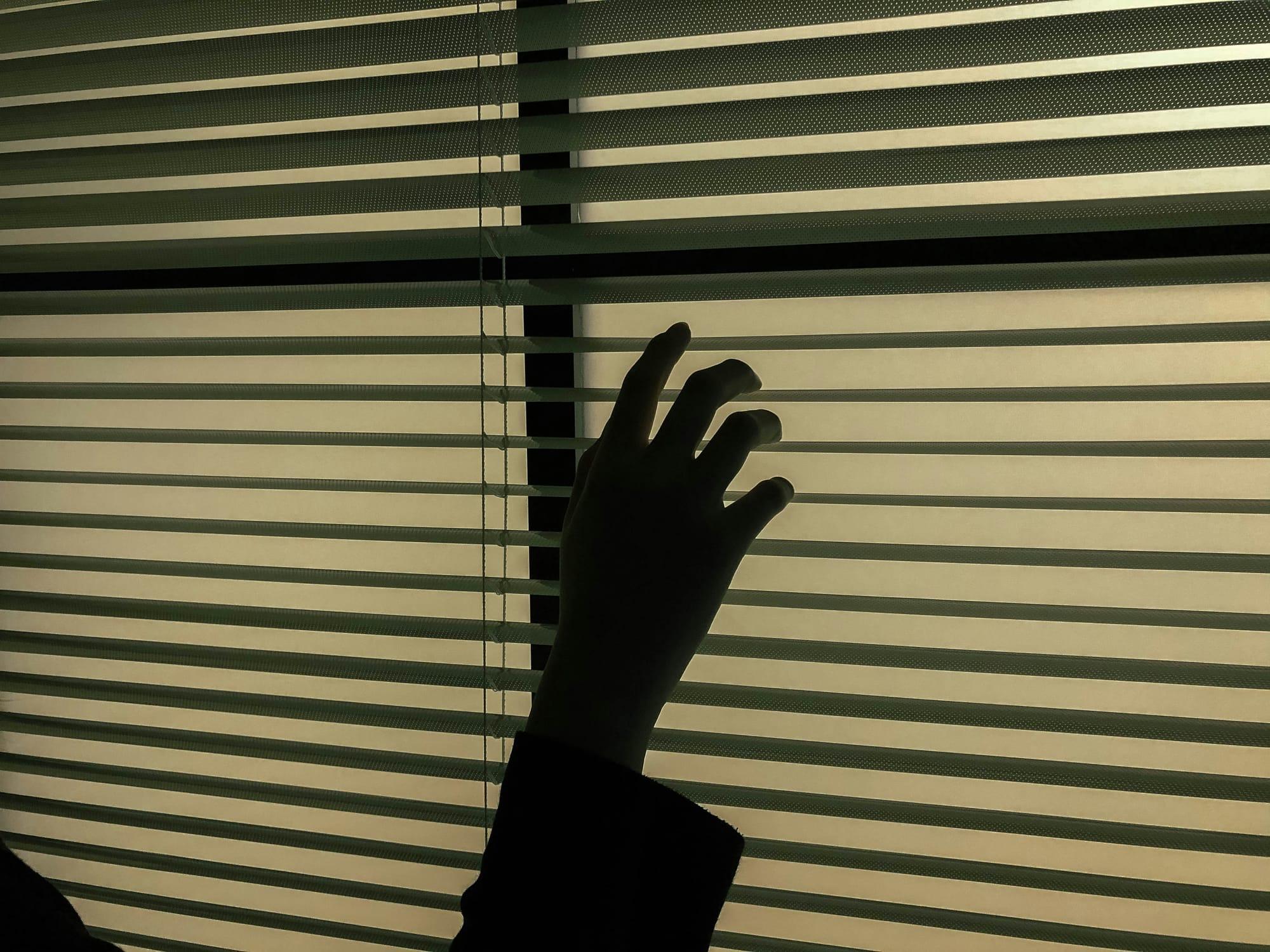The Sartre Guide to Social Media: Why ‘Hell Is Other People’s Comments’

From selfies to selfhood: reclaiming authenticity in a world of performative posts.
- Sartre's "gaze" and "bad faith" explained.
- Why social media is a Sartrean hellscape.
- Sartre's antidotes for digital despair.
One of my favorite viral memes was a post saying they'll go to your exes profile pic and comment "yikes" for $5. I'd never order a service like that, but it's hilarious precisely because it's brutal. People don't post selfies unless they're proud of them. It's the perfect button to push to kill an ego.
Jean-Paul Sartre refers to this form of judgement as the "gaze" or sometimes the "look." It refers to the way someone else's view of you causes you to see yourself as an object. When you're alone your appearance may not be that important to you. It's just an extension of yourself. It's what you use to eat buckets of ice cream, stream House M.D. for the 9th time, and rewind spicy videos at 3 in the morning when no one's looking. But as soon as someone looks at it you begin to judge yourself for it.
Because the "gaze" isn't just about someone looking at us, but how we internalize their judgements. Something we're vulnerable to doing on social media 24/7. You're literally carrying the weight of judgement around with you in your pocket every day. My judgement weighs about 6.07 ounces, and it has a lot of memes on it that the CIA won’t stop asking me about. Fortunately, Sartre is going to help us navigate post-modern technology with existentialist philosophy and his expertise on freedom, authenticity, and the "gaze" of others.
I.
Sartre believed that as soon as someone observes us we become objects in their world. The minute you're even aware that someone, anyone, is watching you might completely change your behavior. It costs your sense of agency. Maybe someone watching might influence how big a slice of cake you're going to cut for yourself at the party. Or how authentically you'll let yourself laugh. After all, Cynthia did call out your laugh for sounding like a Disney super villain at the last company Christmas party. Sometimes it doesn't matter who is watching. You may just immediately begin to assume judgements about yourself through their mere presence. Because there may be things about yourself that you're insecure about regardless of what person is watching.
While the "gaze" was a hit among Sartre's readers in the mid 1900s we can be sure he'd have a field day with social media technology today. Now likes, comments, and followers turn us into vapid performers with curated stories to front a life and aesthetic we believe will reduce the judgement of others upon us. Its non-stop effects are invariably chronic, and it's no wonder modern people live with so much social anxiety, loneliness, and rising depression rates. The digital gaze of our netizen peers give us the feeling that we're always being watched, and therefore ever-judged.
The toxic reaction of the person who feels seen and judged is what Sartre calls "bad faith" (mauvaise fo) where the individual acts inauthentically under social pressure to the point that they adopt false values and surrender their innate freedom as sentient human beings. Online we chase viral trends, suppress our most controversial takes to avoid backlash, and pretend to be happy online. There's nothing wrong with not being happy. But the stigmatization around depression or plain unhappiness might force you to wear a smile as a mask. And let’s face it, most folks will just telling you to stop being a downer when you’ve been having a bad day for the 500th day in a row. God forbid anyone has chronic depression.

II.
This concept of the "gaze" is something Sartre used heavily in his play No Exit where 3 recently deceased people descend to hell only to realize that their mutual judgements of each other make their lives unbearable in hell, and thus; hell is other people. The famous line that people like to quote. It's actually funny the way he originally phrases their dynamic. It doesn't start with overt judgements per se, but rather a love triangle. Each of them is attracted to another member of the trifecta in an unrequited way. A form of hell I'm sure we can all relate to at some point in our lives. Kind of just reminds me of a bar I used to frequent as a regular.
We may not be able to visit the physical hell envisioned in Sartre's play, but in our daily lives we experience the judgement of others online all the time. If you've ever seen a fight on Twitter you'll know they scrutinize every word of what you say there. Reddit debates often turn into pissing contests.
And it doesn't stop at casual judgement. Public-shaming and cancel culture can raise the stakes on the consequences of peer judgement. Wanting to avoid cancel culture can often leave folks feeling like it's better to fit a mold than test the waters with their authenticity. And maybe that's the point of public-shaming after all. These days I’d actually be glad to see white-supremacists and ultranationalists keep their thoughts to themselves, but they’ve infiltrated all my Facebook groups since Trump’s election victory which is why now you’ll mostly catch me on Bluesky or Mastodon.
Of course we don't need to limit ourselves to the extreme sport of shaming to understand how the gaze of others can shorten our authenticity. On apps like Instagram it's easy to fall victim to comparison culture on the image-based platform. We might think twice against posting that pic of ourselves in that swimsuit if we're going to think about how everyone else looks in their self-curated public image.
One of my biggest weaknesses has been Facebook, because the algorithm knows exactly what political posts it needs to show me to coax me into a debate in the comments. Of course my opponents aren't trying to debate they're mostly there to troll. The occasional intellectual among the bunch is a refreshing visit, but more often than not it's trolls. A troll weaponizes their anonymity to reduce others to objects. Anytime I start debating someone on Facebook who has their profile locked and a bio that reads, "You're probably here because I made you mad," I can be rest assured that I'm dealing with a career troll not some mere casual. And that’s what the block button is for.

III.
Sartre's prescribed reaction to the "gaze" is "radical freedom," or the notion that you're in control of how you react to social pressures. You don't have to react to every troll that invites you roll in the mud with them. You can mute them. Hell you can block them or log off. On the other hand you could just decide to boldly post whatever you want without any concern for likes and comments. A personal favorite of mine.
And yet, another one of my favorites is to humanize my trolls. Folks that want to tear me down get personal questions from me. What are you doing after this? What are you looking forward to the most this year? I saw you have a couple kids on your profile, what's the most rewarding part of being a parent?
It's something they never see coming and it helps me feel like I'm rising above their attempt to see me as an object as I begin to humanize both of us. I make them not only a complex subject instead of an object, but I also phrase myself as someone who cares about their fellow netizens. The interaction becomes something more than using a stranger as an emotional punching bag for political cognitive dissonance. I've found it to be disarming among trolls who fully expect you to throw shade in return for the shots they fired.
In general, I find it best to stop performing for algorithms altogether. I'll ask myself, why did the algorithm show me this content? Is it because it's rage bait to beg for my engagement? Is it because it's expecting an ad hominem battle between me and some stranger I don't know, or care about? Sometimes the best way to win the game is by not playing. And that's why sometimes my daily social media experience is just posting a few stories to close friends only, and sending reels to people I actually care about. By outright rejecting toxic "bad faith" authenticity we can stay rooted in the connections that make us feel more ourselves.
Reclaim your "gaze" by using social media for curiosity instead of validation. Use the internet to see rather than to be seen. By following thinkers instead of influencers we can reorient our feeds to become a bouncing pad for reflection instead of judgement. Social media doesn't have to be about our image. It can be about collaborative encounters with like-minded people. By pursuing our passions in art, politics, and tech online we can find special interest groups that make us feel a part of a community that gives us identity rather than vanity. Collectivism is more often the progressive philosophy that cures the illness of individualism that contributes to modern patterns in depression and social anxiety.

IV.
Is hell other people? Is hell other people's comments? Sartre would say it isn't inevitable, but it's a choice. Social media isn't inherently a hell waiting to validate your insecurities. It's a reflection of our own existential dilemmas. And we can rewrite the script. Instead of passively letting algorithms dictate that our attention be suspended in comparison despair and rage bait hamster wheels, we can take more active roles in our online discourse. Rather than reacting to what we see online we can be proactive authors of our own free identity. An agent of our own will, if you will. And when you don't like the message you're getting through social media you have the same options they had back with rotary tech; hang up the phone. Scrolling onward, muting, or logging off are classic Sartre methods for reacting to toxic comments. Or, if you're like me maybe radically humanizing everyone you encounter on the internet is more your style.
This week post something for yourself, and not your followers. Just be authentic. Let us know what lights you up inside without the pressure of what everyone else likes, or how they'll see your interests. And if someone decides to neg your interests, maybe that's just a signal that they're not a part of your tribe. Curate your feed like your sanity depends on it; because it does.


